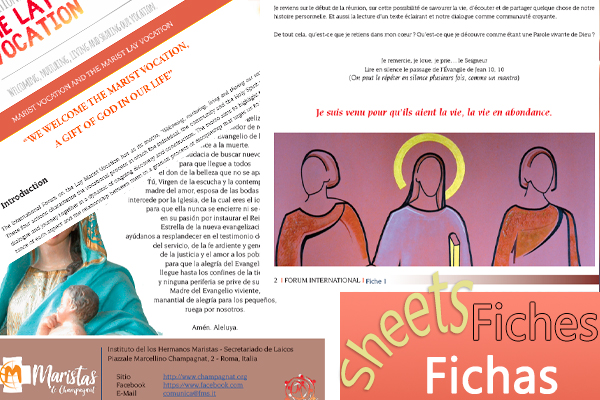Sharing. The Lay Marist Vocation 5
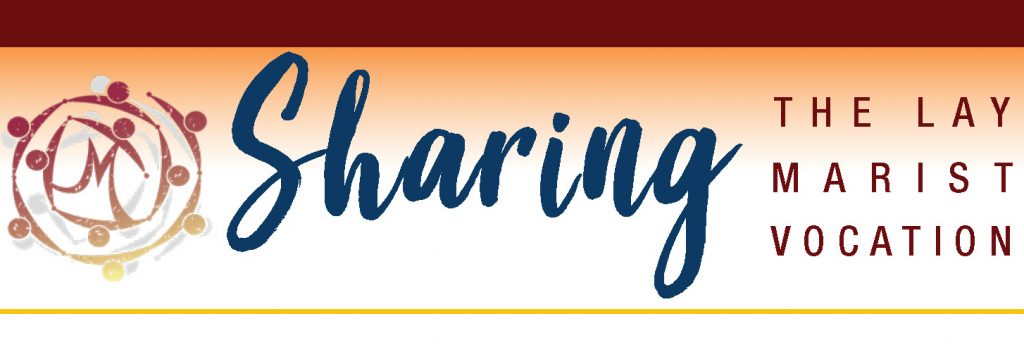
Listen. A challenge, an opportunity
Marta Portas – Province L’Hermitage
Coordinator of the European Laity Team
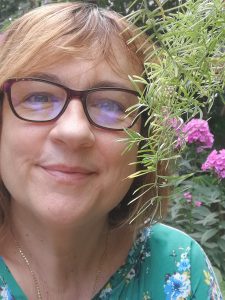
Each academic year, the Marist European Network proposes a common theme for pastoral ministry in schools. For the academic year 21-22 the slogan is “Listen”. We Marists of Champagnat who share our being Marist in life groups, communities, fraternities, local Marist teams can also welcome this proposal.
We receive this motto as an invitation to transform ourselves and to be transformed by listening. Listening and listening to each other, an art to be practised. Giving value to listening will mean, among other things, encouraging welcoming, quality time, full attention, otherness, practising active listening, attending to our inner self, … Listening as an attitude of life, putting it into practice in our daily life, in our personal encounter with others, in caring for the natural environment, in prayer, … Listening by activating all our senses, opening our heart so as not to remain still or indifferent and responding without fear, assertively to the calls we receive.
With the conviction that we all have the capacity to listen, that this listening is important so that presence, family spirit, accompaniment and community life are meaningful and authentic, we set out to continue learning to be leaders in listening. Practising and exercising listening will require preparation, availability, willingness, time, intention, calm, serenity. It is up to each one of us to know how to dedicate quality time to listening, avoiding the activism that makes this practice difficult. It is also up to each one of us to cultivate our interiority. Let us prepare space for listening to the Word, for personal prayer, for prayer with the community, for silence. Let us dive fearlessly into our inner selves and welcome what we hear there as an opportunity to understand, meditate, grow and converse with the God of Life. Exercising listening in the fraternity, in the group, in the community will bring value to our relationships, trust, fraternal dialogue will add value to our encounters.
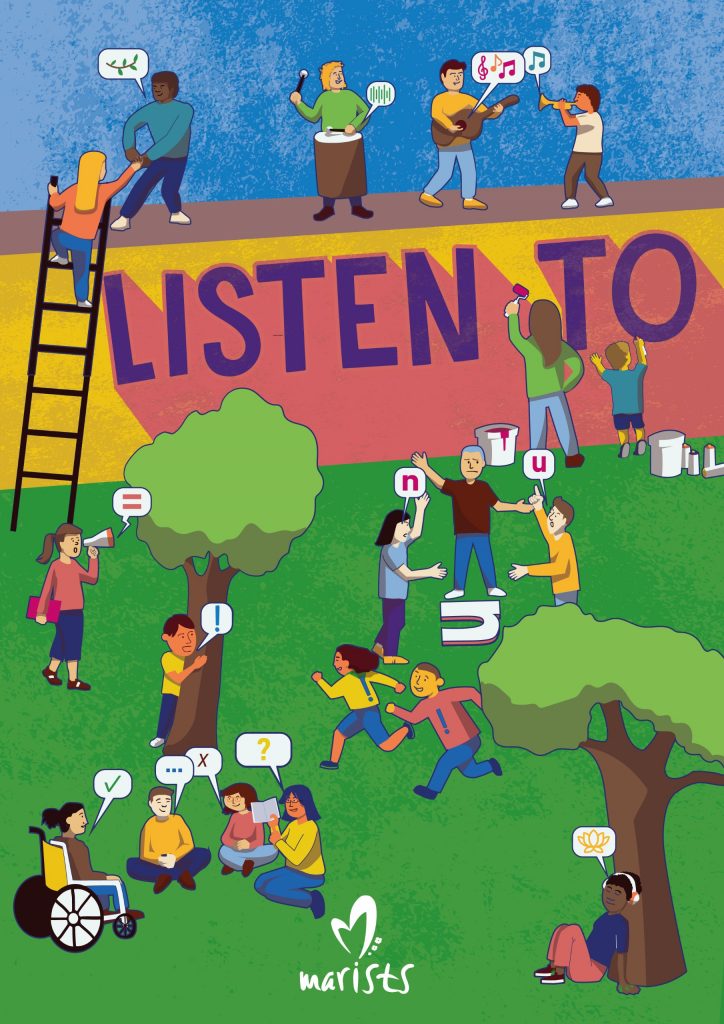
The readings, the music, the experiences suggested by the European Network in the materials it has produced will help us to exercise ourselves personally or in a group. For each month, a sub-theme will bring us closer to listening by paying attention to the least nuance.
In the course which we will undertake this September, the International Forum on the lay Marist vocation will also offer us the opportunity to generate spaces for dialogue and in them listening will be an important attitude for “Welcoming, caring for, living and sharing our vocation”.
Listening. A challenge, an opportunity, go ahead!
Region of Europe: cradle of our charism
Mayte Ballaz César – Province of Ibérica
Coordinator of the Marist Life Commission
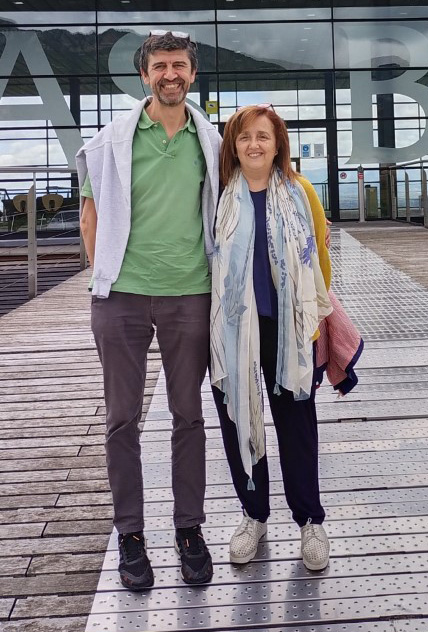
The Region of Europe is made up of the following provinces: Compostela, West Central Europe, Ibérica, L’Hermitage and Mediterránea. From France, the cradle of our charism, in little more than 200 years we can say that Marcellin’s dream has come true: “All the dioceses of the world are part of our plans”.
There have been many, very many brothers who, throughout these years, have been sowing throughout this region the love of Mary and of the children and young people most in need through a simple lifestyle, centred on “the little virtues”, and an educational style in which the integral education of children and young people based on affection and respect are the fundamental pillars.
This way of being, living and acting has become contagious, as if by osmosis, and today there are many of us who also live this charism. Men and women from 15 countries, of all ages and from all walks of life, we have felt called to live our faith within this family.
A rich and varied Marist life
This living out of the charism by lay people has developed slowly and progressively, and each Province has generated different processes to respond to the needs that have arisen.
When, in 1985, the XVIII General Chapter promoted the “Champagnat Movement of the Marist Family”, it began to articulate and share, through the “fraternities”, the richness of living the same charism as brothers and laypeople.
Since then, many steps have been taken and each of the Provinces has seen how different groups have grown: Marist Life, Spirituality, Encounter, lay communities, mixed communities… each one at its own pace, with its own particular process, but all trying to respond to the different vocational needs that arose.
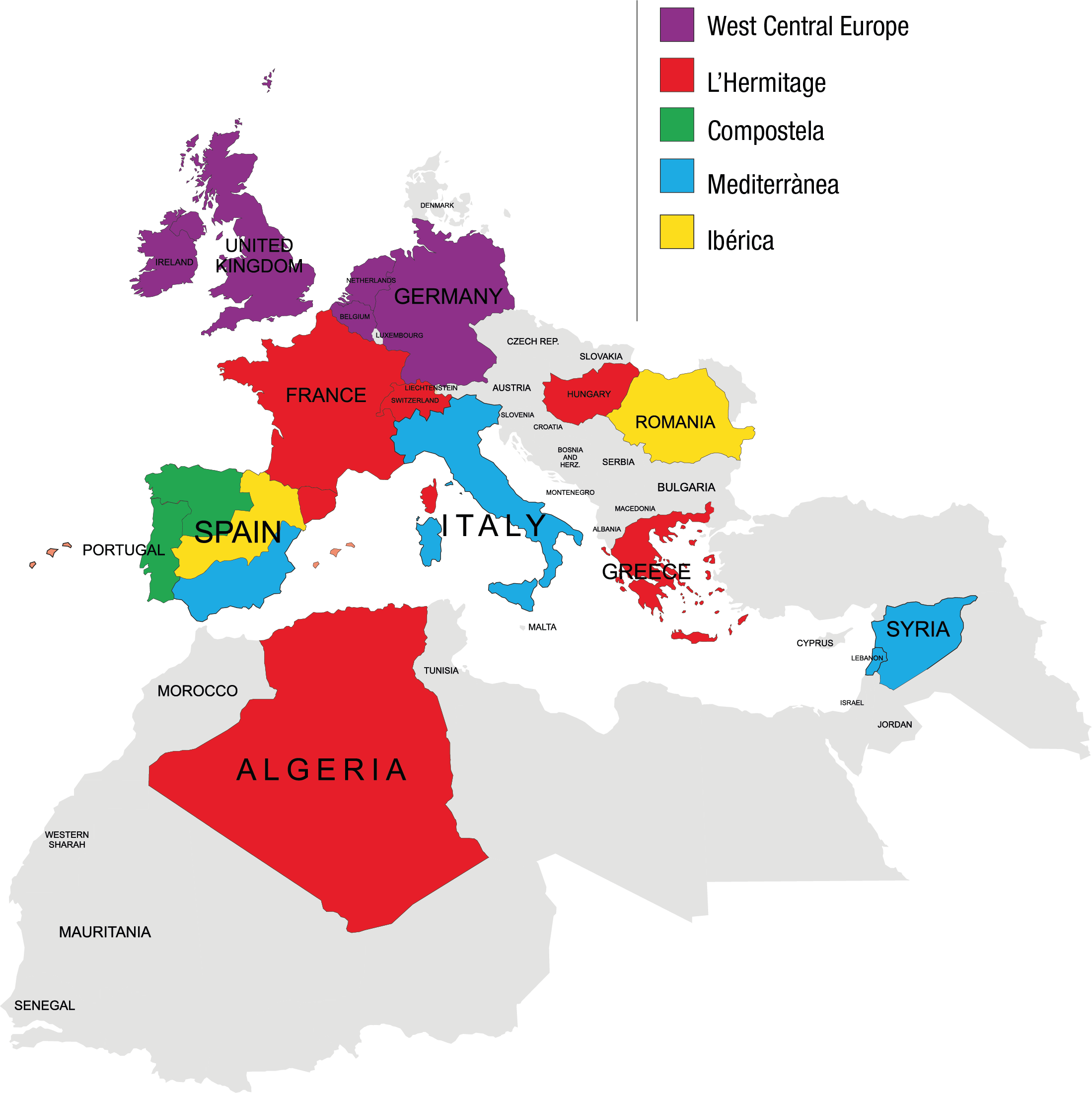
Mixed communities, another way of living community life
One of the responses that has emerged is the creation of mixed communities, where Brothers and lay people share life and/or mission. Each of these communities is very different and has its own characteristics. They have arisen in particular contexts and at particular times in response to different circumstances. Thus, in France there are three mixed communities: Hermitage, Mulhouse and Lagny. Three others in Spain: CUM (Salamanca), Llinars del Vallés (Catalonia) and Granada. One in Giugliano (Italy) and one in Champville (Lebanon). In addition, there are the Fratelli Communities (La Salle – Marists) in Sanlúcar de Barrameda (Cádiz) and Melilla, and two La Valla 200 communities: Moinesti (Romania) and Siracusa (Italy).
In addition to these communities, in some provinces there are projects for the formation of Marist Christian Communities of Reference in the works (CCMR) where brothers and laypeople share mission and are a charismatic reflection in the different Marist presences. “We lay people can bring a new way of animating Marist life in our works. Together with the brothers, we can form local communities that are the heart of the mission and the guarantee of its evangelising Marist identity. These communities can be the seed of a new vitality of mission, which is not based only on the number or presence of brothers on the local scene (Gathered around the same table, 60).
Linking to the charism, a reality that is gaining strength
Over the years, many lay people have expressed their desire to make public their attachment to the charism, and in almost all the provinces of the European region, accompaniment itineraries have been developed to help discern this vocation. In all the provinces these itineraries have 4 common themes: vocation, mission, spirituality and fraternity. The process of development has not been easy. Fears and reticence arise, but at the same time, desire grows and all of us, brothers and lay people, become aware of the crucial moment that the Church and the Institutions are going through and of the responsibility that we must assume.
In all the provinces we have been looking for people who can accompany these processes. Brothers and lay people who can help others to make a serious and profound reflection on their experience and their itinerary in the light of the Word, of sharing with their brothers and sisters, of listening to the signs of the times… so that they can respond to their vocation. The people who accompany these processes form a team that is trained in accompaniment, sharing, praying, revising materials… in order to constantly improve them. At the moment we can say that there are 55 people linked to the charism in the Iberian province and soon other lay people from the other provinces will join in, as Compostela, L’Hermitage and Mediterránea have also assumed these processes.
European Team of the Laity
The European team of lay people, made up of six people, one from each Province plus Brother Teodorino Aller, secretary of the region, has the mission of sharing all these situations which, although similar, are different in each context, and tries to unify criteria and points of view with a view to the future.
There are issues on which each Province is reflecting, but which concern us all as a region of Europe and as an Institute. As a team, we would like to be able to offer our own, based on our different concerns and realities, so that the road we have travelled becomes more and more a common and shared road. There is an issue that concerns us all and that we would like to address as a region, that of the Charismatic Family. But this will be for the next chapter.
Sharing Marist life in community
Ana Gómez Haro and Javier Fernández Castillo – Province of Mediterránea
Married couple in the mixed community of Granada and in the fraternity Cristo de Bugobe;
members of the Provincial Lay Team
These lines are intended to provoke a reflection, an idea, a conversation… the kind that helps us to move forward, walking together.
“We need a community that supports us, that helps us and in which we help one another to look ahead. How important it is to dream together! Alone we run the risk of having mirages, in which we see what is not there; dreams are built together” (Fratelli Tutti, 8).
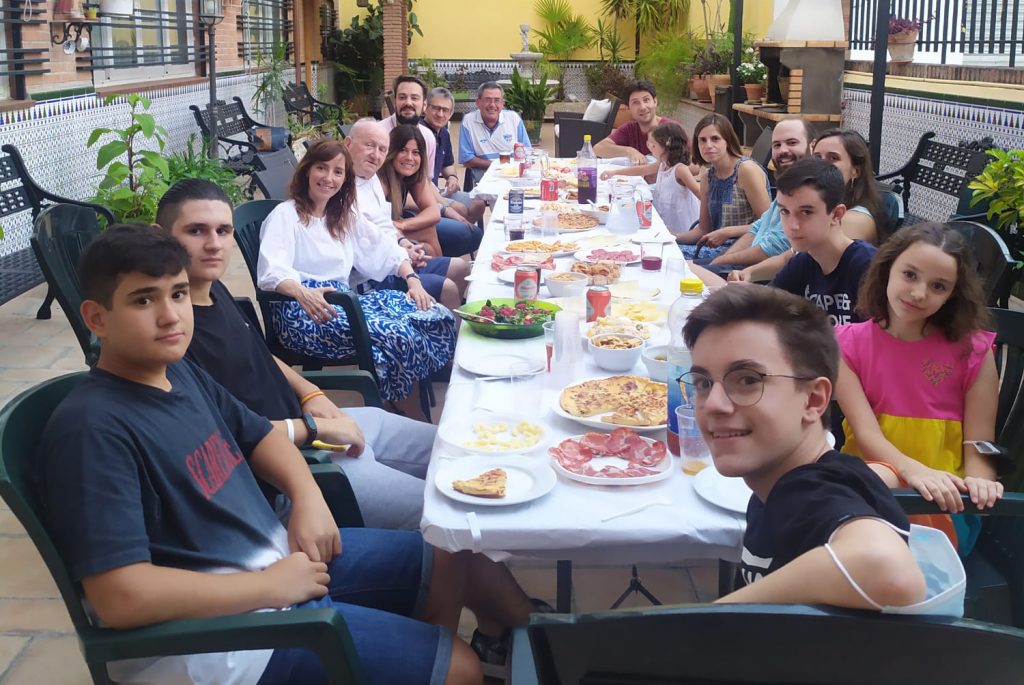
Sisters and brothers dreaming, walking and building together, by choice, by vocation and also by necessity. The Gospel, the Good News, is so rich, there are so many ways of approaching it, of living it with intensity, that we need others to enrich our daily life as Christians. How wonderful it is to discover community life! Sharing in depth, putting all of life on the table, exposing with transparency thoughts, feelings, experiences… so that, through the word – or the silence – of others, God enlightens. A community life in which our heart beats strongly, where we laugh heartily, where we vibrate with the mission, that we are excited at every step?
We start from a conception of lay community life that tries to go beyond the reductionist vision of being part of a specific group of people with whom we share Christianity. We try to take the conceptual step of looking beyond: from the shared life in a concrete group, the experience of its community project is added to the option of community life in many ecclesial realities that surround us in a stable (family, marriage, fraternity…) or circumstantial way (mission or formation community, field or work team…). We combine, therefore, a “Petrine” vision of community, or stable group, with a “Pauline” option of living communally in the places of the Church where we find ourselves.
We understand that this broader vision fits better with the changing reality of lay life: more or less stable or temporary stays in different places for reasons of formation, work or care of others, at the same time that the personal situation is changing, not always linearly, with constant restarts, between single life, life as a couple, family with children, solitude, life in a large family… Our communities have to commit themselves to projects firmly rooted in the Gospel and open to the flexibility that these changing realities demand in order to be able to accompany and welcome.
To form these communities, we lay Marists are called, at the present time, to take all that is positive from the heritage of the structures of classic religious communities, in our case of Brothers, such as the care for prayer, the care for bonds and fraternal communication, the openness to change – of destination or of companions on the way – and the backpack of the experience that many of us have from years and years of growing in groups of Youth Ministry: search for growth, design of itineraries to help on the way, union with other groups, affective bonds… But, at the same time, we have to be able to detect everything that does not help us from the characteristics of these two “sources” and be able to leave it behind in order to mature communally towards innovation. We can question ourselves about the degrees of hierarchisation, the nostalgic look at the past, the passivity in waiting for proposals to come to us from outside, the difficulty of walking in the heterogeneity of ages, thoughts, mission options…
And the other great challenge of our times is the enormous need to define and compare ourselves. What is a lay community? What differentiates it from a community of brothers? And what if it is mixed? We must define ourselves, first of all, by what unites us. And in the encounter, bridge, dialogue… that this provokes, to discover each one of us in a unique vocational combination: state of life, calls of the world, ministry, family situation, community option, commitment in society, prayer life, personal journey and experience. No one has to prove anything to anyone. We lay Marists do not need to prove anything: that our vocation is authentic, that our forms of commitment are valid, that… To enter into the world of comparison and competition is a mistake. Let us not look at others with “vocational suspicion”. We do not live in a Church divided into communities but in a Church built in communal diversity: “One body, and all members one of another” (Rom 12,5).
From this idea of diversity, let us ask ourselves personally and as a group what community life can bring us, and what our community life can and is already bringing to the Church. To help, we will develop some ideas following the classical scheme of community dimensions: koinonia (communion), martyria (witness), diakonia (service) and liturgy (celebration). At the same time, a clear link can be created with the four verbs that will accompany us along the way of the International Forum on the lay Marist vocation: welcoming, caring, living and sharing.
Welcoming to community (“they shared with joy and sincere simplicity” Acts 2, 45)
“To be Church is to be the People of God, in accordance with the Father’s great plan of love. (…) The Church must be the place of free mercy, where everyone can feel welcomed, loved, forgiven and encouraged to live according to the good life of the Gospel”. (Evangelii Gaudium, 114)
The Gospel invites us to go out of ourselves in order to connect through authentic relationships with others. We show ourselves in a transparent way, just as we are. In the Good News we find the way not to pretend: I am a beloved child of God. And so are those around me. Our communities will beat to the rhythm of Jesus when we are able to open ourselves with all its consequences to this great truth: God loved us first. And from there comes the strength to enter into communion with others and with ourselves, to accept, to forgive, to build, to dialogue, to appreciate… We are invited by the Spirit to bring this kind of relationship to our families, to our partners, to friends, to the group, to colleagues… To our whole Church and to our whole society. Our community life must be the place where we experience this communion in order to launch it into the world.
Witnessing from life: (“What does this mean?” Acts 2, 3)
The best way to show that Jesus’ project of transforming the world and creating a new human community is not a chimera is through a group – the Christian community – which shows that it is possible to make this dream come true right now: “See how they love one another”. (Fourvières, the revolution of tenderness – Br. Emili Turú – 2015)
When we allow the Spirit to overflow us, without putting a measure on it, simply living day by day becomes a constant witness of God. Bringing this to our communities, sharing the joy of feeling loved unconditionally, provokes the society that contemplates, like those people with the apostles after the experience of Pentecost. And the question arises in our hearts: what does this mean? Today, every Christian community must ask itself a fundamental question: when they look at us, what do we suggest? We are talking about making visible, in our lay communities, countless imperfect glimpses of the Kingdom: extended families that share moments of great intensity, taking into account children and the elderly; a sincere sharing of goods, in all senses, that enriches whoever approaches; the Marist family as an image of intergenerational and intervocational inclusion; the real equality of participation and importance, between women and men; the enormous diversity of functions and jobs in which a Christian can build a more fraternal world.
In the service of care (“they distributed according to each one’s need” Acts 2, 45)
“Small but strong in God’s love, like St. Francis of Assisi, all Christians are called to care for the fragility of the people and the world in which we live” (EG, 216). (EG, 216)
We form communities that give life “inwards”: that care for us, in which we can share, to which we can always return after the long journey… but they are incomplete without their main reason for being: giving life “outwards”: sharing what we live with others, with open moments, actively participating in ecclesial encounters, energetically supporting just causes, being at the side of the weakest… Being communities “salt and light” for those who are inside but, above all, for those who need us most. Being equanimous and prioritising: time, according to Jesus, is shared out starting with those who need us most. If we use this criterion, even if the days end without having reached everything, we will find peace and meaning in ourselves. And these needs are not only within the margins of the Catholic Church. As lay communities inserted in society we must know how to go further: to be “salt and light” in society, in the great people of God, all people.
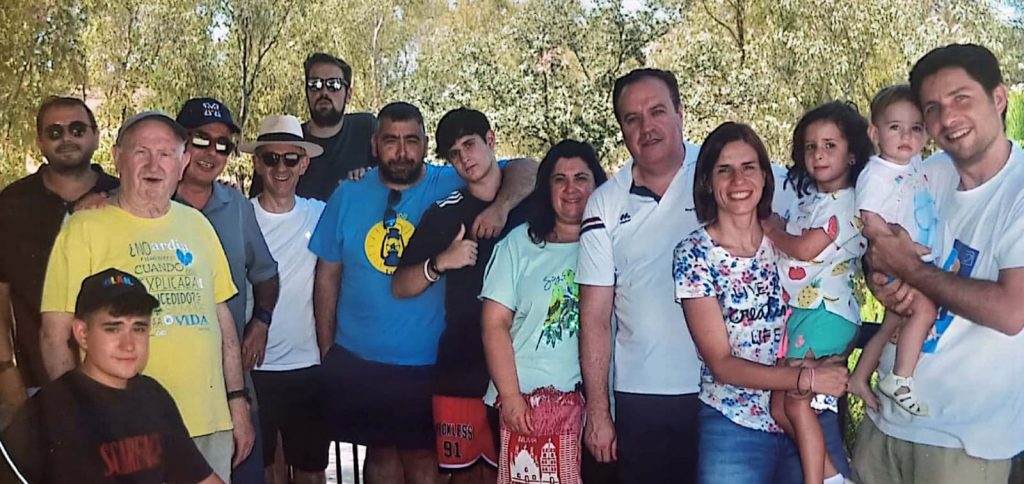
Sharing and celebrating: (“They praised God” Acts 2,45).
“(…) When an evangeliser comes out of prayer, his heart has become more generous, he has been freed from an isolated conscience and is eager to do good and to share life with others”. (EG, 282)
Thank you, Lord, how fantastic to be able to end the days, the weeks… and to begin them, being able to shout this! Celebrating helps us to keep the best so that we can continue to struggle to transform that which outrages us, and which casts a shadow over creation. It helps us to rescue ourselves from discouragement and to draw nearer again to the Source to refresh ourselves. And these moments are ideal for us to become a community open to the world, outgoing, eager to show what moves us. They are moments for sharing among communities: for those who have taken fewer steps to see the great community, who can lean on the staff of experience; and those whose joint paths are already long can breathe new airs, updated expressions of the same feeling. And all this open to the ecclesial experience of the sacraments: Eucharist and reconciliation, and also specific sacraments such as marriage, baptism, priestly ordination, confirmation… that fill life with fundamental milestones to get out of the routine, without forgetting participation in the liturgical seasons, as privileged moments for a broad community encounter.
How can we continue to bring innovation from our being lay people in community to our own lives and to the fraternal dimension of the Church? Let us respond each day, personally and as a group, to the questions that arise from each of these dimensions. Let us walk, without haste, with patience, enjoying the gift of each day and of each person. And let us continue to share.
International Forum on the Lay Marist Vocation – Stage 2
Secretariat of Laity
In the process of the International Forum on the Lay Marist Vocation, we are in ‘Stage 2’, which corresponds to the ‘local and provincial or district meetings’, and which will run from June 2021 to June 2022.
This stage involves the study and deepening of the proposed objectives and themes, at personal and community level. The dynamics will be developed in small groups made up of brothers, mixed communities, committed lay men and women, fraternities of the CMMF or other movements, in person, where possible, or on-line.
In the different Administrative Units, at this stage:
- The proposal of the International Forum will be put forward.
- -Dialogue will be developed among all the participants, in small groups (communities), in person or virtually, according to the guidelines given by the Secretariat of the Laity.
- Representatives (two lay people and one brother) will be selected in a participatory way to attend the International Forum. Their participation will begin in November 2022 (Rome, in person) and then in November 2024 on-line.
- There will be a Provincial/District Forum or a similar face-to-face or on-line event in which representatives of the local phase will participate. Each AU will organise this experience according to its situation. The three representatives of the AU will be sent to the Forum.
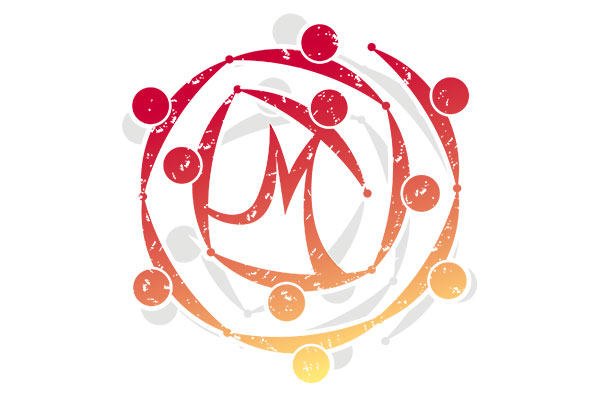
To support the dialogue of the communities, the Extended Secretariat of the Laity has prepared a series of indicators to guide the animation of the Provincial or District Teams and to help in the reflection of each fraternity or community of lay people and brothers and sisters. It consists of a series of cards to animate the meetings and which touch on each of the objectives of the Forum, with the intention of generating reflection and dialogue among all the lay people and brothers involved in this process and of formally welcoming their opinions and contributions to the Forum. The Provincial or District Teams responsible for the Forum in their respective Administrative Unit will animate this stage and distribute this material according to the calendar that each one has organised.
Here you can access the material to develop this second stage in each AU: Forum Lay Vocation > Phase 2 – Champagnat
Testimonies
How I live being a Lay Marist
Nerea Cano – Province of Compostela
Member of the Marist Spirituality Group (GEM), Hermitage Family
volunteer of the MarCha youth movement and trained in accompaniment of the soul
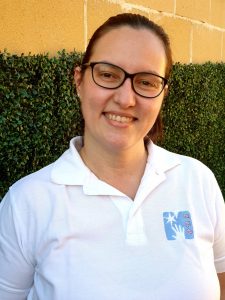
I experience being a lay Marist as a gift, as an opportunity that life has given me to understand life through simplicity and presence, paying attention to the small details and to the souls of people. One of the most important things I have learned in this process has been to look a little beyond the actions of people. They have taught me to glimpse their inner self and listen to my own, to be aware of when the ego rules, to try to be at peace on my own by distancing myself from the influence of the environment, to heal deep wounds.
The Brothers helped us to create a space of protection that today we can call family. A family to take refuge in when times are dark and to celebrate every little step we take. GEM helps me to return to what is important when the hustle and bustle of everyday life makes me focus on the urgent. I feel the fraternal and non-judgmental embrace of each one of us.
I can only be thankful that Champagnat had that wonderful dream and put myself at the disposal of service to continue this chain of welcome, care and love.
Finding strength in faith for oneself and Christian action
Christian Röhrl, Province West Central Europe
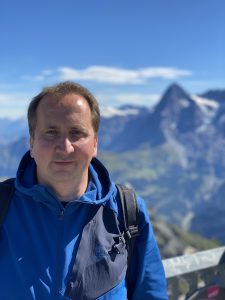
Through my own life of faith and personal experiences, I often and gladly place myself at the service of others. From an early age I have trusted in God’s love and support and have never been disappointed in different situations. I grew up together with my two brothers Stefan and Thomas in a well-protected and Christian home. Due to the close ties to the local parish, I have never given up helping in our parish in Miltach, Germany, since my first communion: for many years as an altar boy and until today in helping out in the sacristan’s service and in organising and carrying out church events. I often and gladly bring my skills to help the Church. First and foremost, as the first person to be baptised in our local parish church, I am still eager to look after the children and young people (whether as an altar boy or at children’s and youth meetings), to encourage them in their faith life and to experience community and cohesion together with them.
The years in which I was able to gain a lot for my personal life of faith in school and extracurricular activities at the Maristen-Realschule Cham also strengthened my later commitment. In addition to my many years as 1st treasurer in the previous association “Friends of the Marist Secondary School of Cham”, it is a great joy for me to pray with the young people at the Pentecost meetings or similar meetings at provincial level, to speak with them and to engage with them and our common faith.
I look forward to continuing to build bridges between myself, my fellow human beings and all those worldwide who, like me, trust in God and Christ.
Silence – Beauty – Equilibrium.
Jordi Cunillera Graño – Province of L’Hermitage
Marist Community of Llinars del Vallès, Catalonia
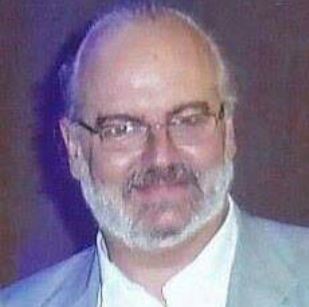
For more than six years (since January 2015) I have been living in the Marist community of Llinars del Vallès (Catalonia, L’Hermitage), a mixed community made up of four Marists: three brothers and one lay person. Before taking this step, there was a period of time for reflection and dialogue (with the brothers, with the laypeople, with the community of Llinars itself), to finally make the “official” request to the Brother Provincial. I use the three words (SILENCE, BEAUTY, EQUILIBRIUM) which accompanied me throughout the retreat which I made before sharing this short testimony of my experience.
I have kept my job in Barcelona, so my life as a worker has not changed much. On a personal level, one of the most interesting changes has been to have, every day, a time of reflection, of silence, of listening to the Lord. This is the time of community prayer at vespers before the evening meal. I wasn’t used to having time like this, but now I look forward to it and enjoy it, and every day it can be different: reviewing the day, thinking about the people with whom I have shared a moment during the day, or simply sitting in silence and listening. A time to pray, to listen to the Word of God, to listen to my brothers in community…
There was also a complete change of atmosphere: from the city of Barcelona to the rural world of Llinars del Vallès. Especially during this last year and in the midst of the pandemic, I learned more to contemplate the beauty of nature, to perceive all the wonderful changes that occur throughout the year. And I have become aware, once again, of the need to take care of our Earth. As they say in some circles, there is no such thing as “Planet B”: we live on it and we have to take care of it and leave it in good condition for the generations to come.
Finally, the small and big changes in my life over the last six years (community, new timetables, new environment, etc.) have led me to a new equilibrium, one in which I feel very comfortable. Moreover, I believe it is a more solid, stable balance: not being as affected as before by continuous daily situations that create imbalances that need to be redressed. In short, an experience that I recommend to lay people who would like to deepen their Marist life.
Being Marists Today
Georges Sawaya and Sabine Chehab – Province Mediterránea
Marist lay people in the mixed community of Champville, Lebanon
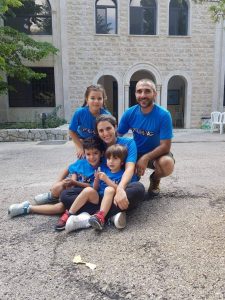
We would probably have answered the same question differently if we had been asked it a year or two earlier. Indeed, what could it mean to be Marists today in a country that is falling apart? with a middle class that has become poor, an unprecedented economic crisis, a shortage of raw materials, petrol and medicines; with schools that suffer from a lack of means, non-existent security, families, young people by the hundreds who decide to leave the country to try to find some dignity elsewhere (an experience that we also tried and that helped us to change, to discern and to understand that it is precisely in the midst of this darkness that our mission takes on its full meaning).
We trust “that each believer discerns his or her own path, bringing out the very best of themselves, the most personal gifts that God has placed in their hearts (cf. 1 Cor 12:7). (…) We are all called to be witnesses, but there are many actual ways of bearing witness. (Pope Francis, Gaudete et Exsultate, 11).
It is within this situation that we are convinced more than ever that our role as a Marist family goes beyond the school setting. Today, here and now, we know that we are called to be “beacons of hope” (XXII General Chapter) where depression and negativity are omnipresent. Simply, in our daily lives, with those around us, family, friends, community, young people in Christian life groups, we try to have a positive attitude, continuing to see the beauty that surrounds us; trying to help them refocus their gaze on the real treasures that life offers us, accompanying them in their vocational discernment and putting our hope and trust in God. It is a very simple and humble mission which, of course, will not put Lebanon back on its feet, will not restore the country’s economy, will not guarantee more security, will not make petrol, medicines, basic foodstuffs available, will certainly not eliminate corruption and will not change the country’s politics either BUT we believe that it will at least have the merit of giving back a little meaning to the lives of those who had lost it.

